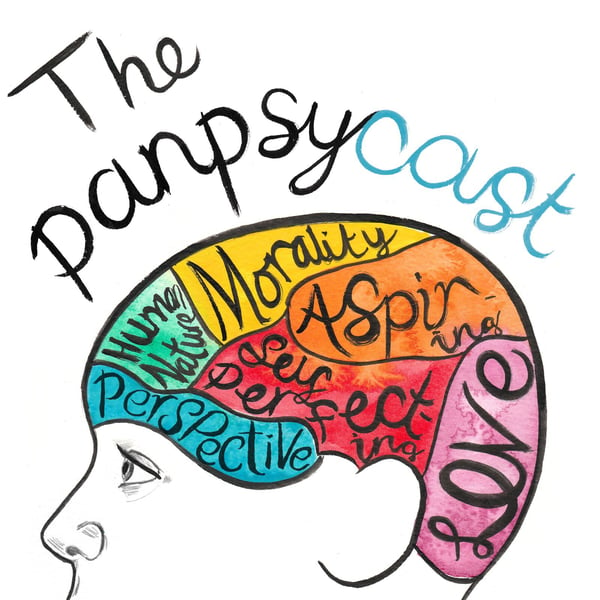Episode 32, Meta-Ethics (Part II - Intuitionism)
The Panpsycast Philosophy Podcast
Jack Symes | Andrew Horton, Oliver Marley, and Rose de Castellane
4.8 • 604 Ratings
🗓️ 28 January 2018
⏱️ 51 minutes
🧾️ Download transcript
Summary
Please visit our Patreon page and show your support! (www.patreon.com/panpsycast) This episode is proudly sponsored by The Partially Examined Life Philosophy Podcast. For information, please visit www.partiallyexaminedlife.com. Everything you could need is on www.thepanpsycast.com! Please tweet us your thoughts at www.twitter.com/thepanpsycast. Meta-ethics is the attempt to understand the metaphysical, semantic, epistemological and psychological presuppositions of moral thought. It investigates our ethical language, in search of the meaning that lies behind it. Meta-ethics is concerned with are a broad range of puzzles, for example: What do we mean we make moral claims? Do our preferences or feelings motivate moral assertions? Or are we stating facts when we make moral claims? Is morality more a matter of taste than truth - and if it is a matter of truth, how do we learn about the moral facts? This episode we’ll be introducing you to three meta-ethical views. In Part I, we’ll be discussing naturalism, in Part II, we’ll be looking at intuitionism, in Part III, we’re going to dive into emotivism, and finally, in Part IV, we’ll be engaging in some further analysis and discussion.
Transcript
Click on a timestamp to play from that location
| 0:00.0 | Part 2, Intuitionism. |
| 0:15.4 | Right, for this section, we're focusing on G.E. Moore's, Principal E. Thic, from 1903. Who was G.E. Moore? |
| 0:24.3 | G. Moore was a British professor in philosophy, and we've mentioned him on the previous episode |
| 0:28.8 | on Wittgenstein. He lived between 1873 and 1958, and we're looking at his major work, |
| 0:35.3 | Principal Ethica, as I just mentioned, was published in 1903. |
| 0:40.2 | Along with Bertrand Russell, Ludwig Wittgenstein and Gottlob Frege. Moore was one of the founders |
| 0:45.7 | of the analytic tradition in philosophy. It was actually Moore who suggested Wittgenstein's |
| 0:51.8 | the name of his book, the Tractatus Logico Philosophagus, and he was on the panel |
| 0:56.9 | with Bertrand Russell who allowed Wittgenstein to submit his tractators as his PhD thesis at Cambridge. |
| 1:03.3 | Along with Russell Moore becomes well known for his common sense approach to epistemology metaphysics |
| 1:08.9 | and what we're discussing today, his ethics. |
| 1:12.0 | So what are his ethics? What's his metaethical view? Well, spoiler, it's intuitionism, |
| 1:17.3 | but what does this word mean? What does an intuition mean? I think an intuition is something that |
| 1:23.3 | comes to somebody or a group of people naturally, something that you feel as a response to |
| 1:29.3 | some kind of stimulus. It's almost always the first sort of port of call that your mind makes |
| 1:37.9 | that either could be right or wrong. And on reflection, you can, you can sort of change your mind about your intuition. |
| 1:47.0 | But it's, I'd say simply, that it's what you first think of when you're confronted with, for example, an issue. |
| 1:54.5 | And it's important to recognise and define that intuition is very different to reason in the senses. |
| 1:59.9 | Right. So an intuition is your first immediate thought when you're thinking about this moral statement. |
| 2:05.3 | It's not through empirical evidence and it's not through reason. |
| 2:08.1 | Okay. |
| 2:08.5 | So I see someone kicking me in the leg and it's just intuition that tells me that it's bad. |
... |
Please login to see the full transcript.
Disclaimer: The podcast and artwork embedded on this page are from Jack Symes | Andrew Horton, Oliver Marley, and Rose de Castellane, and are the property of its owner and not affiliated with or endorsed by Tapesearch.
Generated transcripts are the property of Jack Symes | Andrew Horton, Oliver Marley, and Rose de Castellane and are distributed freely under the Fair Use doctrine. Transcripts generated by Tapesearch are not guaranteed to be accurate.
Copyright © Tapesearch 2025.

